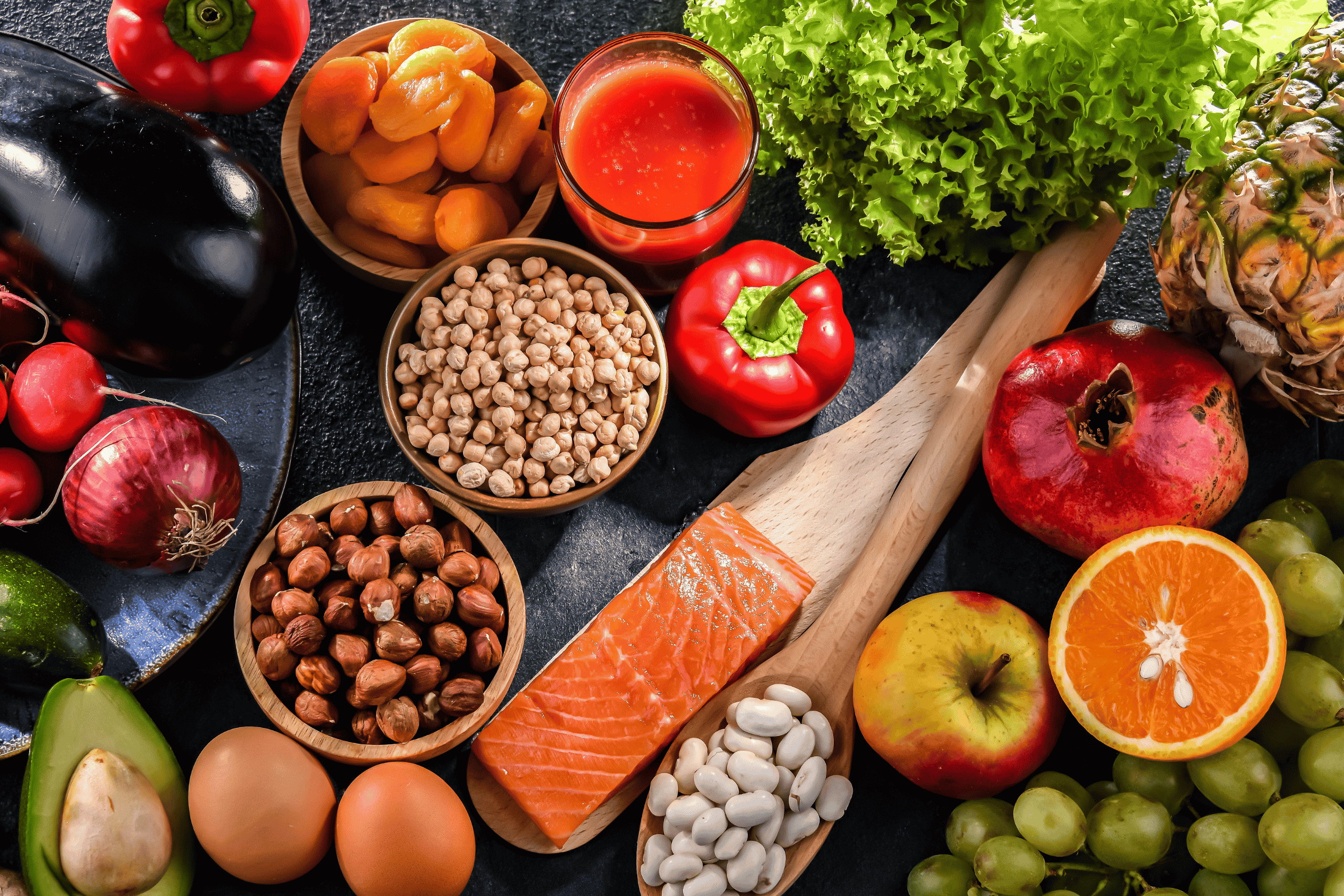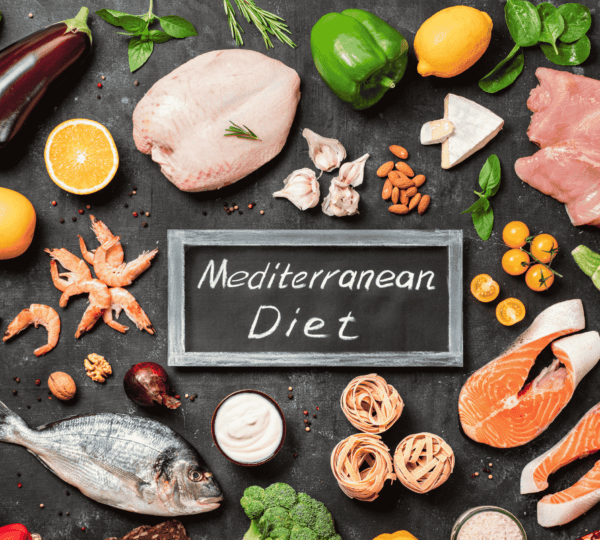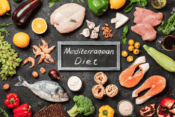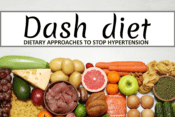
5 Best Diets of 2025: Comprehensive Guide to Sustainable Weight Loss
Sarah stared at her reflection in the mirror, feeling a mix of frustration and determination. At 35, she had tried countless diets over the years, each promising miraculous results but ultimately leaving her disappointed and right back where she started. As she scrolled through her social media feed, an article caught her eye: “The 5 Best Diets of 2025.” Intrigued, she began to read, hoping that this time, she might find a sustainable solution to her weight loss journey.
In this comprehensive guide, we’ll explore the top 5 diets of 2025, backed by scientific research and expert opinions. We’ll delve into their principles, benefits, and how they can help you achieve sustainable weight loss and improved overall health.
1. The Mediterranean Diet: A Timeless Classic
The Mediterranean diet continues to reign supreme in 2025, maintaining its position as one of the healthiest and most sustainable eating plans.
Key Principles:
- Emphasis on plant-based foods
- Healthy fats, particularly olive oil
- Moderate consumption of fish and poultry
- Limited red meat intake
- Regular consumption of red wine (in moderation)
Benefits:
- Promotes heart health
- Supports brain function
- Aids in weight management
- Reduces risk of chronic diseases
How it Promotes Sustainable Weight Loss:
The Mediterranean diet’s focus on whole, nutrient-dense foods and healthy fats promotes satiety, making it easier to maintain a calorie deficit without feeling deprived. Its flexibility and emphasis on enjoying meals with others also contribute to long-term adherence.
[Interlink: For a more detailed exploration of the Mediterranean diet, check out our article “Mediterranean Diet: The #1 Healthiest Eating Plan for 2025 (Expert-Approved)”]
2. The DASH Diet: Balancing Nutrition for Overall Health
The Dietary Approaches to Stop Hypertension (DASH) diet, originally designed to lower blood pressure, has evolved into a comprehensive eating plan for overall health and weight management.
Key Principles:
- Rich in fruits, vegetables, and whole grains
- Includes lean proteins and low-fat dairy
- Limits sodium, added sugars, and saturated fats
- Emphasizes portion control
Benefits:
- Lowers blood pressure
- Reduces risk of heart disease and stroke
- Supports weight loss
- Improves insulin sensitivity
How it Promotes Sustainable Weight Loss:
The DASH diet’s balanced approach to nutrition ensures that you’re getting all essential nutrients while maintaining a calorie deficit. Its emphasis on whole foods and portion control helps develop healthy eating habits that can be maintained long-term.
[Interlink: Curious about how the DASH diet compares to other eating plans? Read our article “DASH vs. Flexitarian: Which 2025 Top-Rated Diet Is Right for You?”]
3. The Flexitarian Diet: Plant-Based with Flexibility
As plant-based eating continues to gain popularity, the Flexitarian diet offers a balanced approach that appeals to those looking to reduce meat consumption without completely eliminating it.
Key Principles:
- Primarily plant-based
- Occasional inclusion of meat and animal products
- Emphasis on whole, minimally processed foods
- Encourages experimenting with plant-based proteins
Benefits:
- Environmentally friendly
- Supports heart health
- May reduce risk of certain cancers
- Promotes weight loss
How it Promotes Sustainable Weight Loss:
The Flexitarian diet’s flexibility makes it easier to adhere to long-term. Its focus on plant-based foods naturally increases fiber intake, promoting satiety and supporting healthy digestion. The diet also allows for occasional indulgences, reducing the likelihood of feeling deprived.
[Interlink: Discover more about the rise of plant-based eating in our article “Plant-Based Revolution: Why Flexitarian Eating Is Trending in 2025”]
4. The MIND Diet: Nourishing Your Brain and Body
The Mediterranean-DASH Intervention for Neurodegenerative Delay (MIND) diet combines elements of the Mediterranean and DASH diets, with a specific focus on brain health.
Key Principles:
- Emphasizes brain-boosting foods like leafy greens, berries, and nuts
- Includes whole grains, fish, and poultry
- Limits red meat, butter, and sweets
- Encourages moderate wine consumption
Benefits:
- Supports cognitive function
- May reduce risk of Alzheimer’s disease
- Promotes heart health
- Aids in weight management
How it Promotes Sustainable Weight Loss:
The MIND diet’s focus on nutrient-dense, whole foods naturally supports weight loss while nourishing the body and brain. Its specific guidelines provide structure while still allowing for flexibility, making it easier to follow long-term.
[Interlink: Learn more about the cognitive benefits of this diet in our article “10 Science-Backed Reasons the MIND Diet Boosts Brain Health in 2025”]
5. The Nordic Diet: Embracing Northern European Wisdom
Inspired by the traditional eating habits of Scandinavian countries, the Nordic diet has gained recognition for its health benefits and sustainability.
Key Principles:
- Emphasis on seasonal, locally sourced foods
- High intake of fatty fish, berries, and root vegetables
- Includes whole grains, particularly rye and barley
- Limits processed foods and sweets
Benefits:
- Promotes heart health
- Supports weight loss
- Environmentally sustainable
- May reduce inflammation
How it Promotes Sustainable Weight Loss:
The Nordic diet’s focus on whole, minimally processed foods naturally supports weight loss. Its emphasis on seasonal and local produce encourages a diverse nutrient intake and can make meal planning more engaging and enjoyable.
Implementing Sustainable Weight Loss Strategies
Regardless of which diet you choose, here are some key strategies for achieving sustainable weight loss:
- Focus on whole, nutrient-dense foods
- Practice portion control
- Stay hydrated
- Incorporate regular physical activity
- Get adequate sleep
- Manage stress through mindfulness practices
- Plan meals and snacks in advance
- Allow for occasional treats to prevent feelings of deprivation
- Seek support from friends, family, or a professional nutritionist
[Interlink: For more tips on making your diet a sustainable lifestyle change, read our article “2025’s Ultimate Guide to Turning Diets into Lifestyles: Tips from Nutrition Experts”]
The Science Behind Sustainable Weight Loss
Sustainable weight loss is about more than just reducing calorie intake. It involves creating a balanced approach that nourishes your body while creating a modest energy deficit. Here’s what the science says:
Metabolic Adaptation
Research has shown that rapid weight loss can lead to metabolic adaptation, where your body reduces its energy expenditure to conserve resources. This can make it harder to maintain weight loss long-term. Gradual, sustainable weight loss helps minimize this effect.
Gut Microbiome
Emerging research suggests that the gut microbiome plays a crucial role in weight management. Diets rich in diverse plant foods, like those featured in our top 5 list, support a healthy gut microbiome, which may contribute to better weight control.
Hormonal Balance
Crash diets and extreme calorie restriction can disrupt hormonal balance, affecting hunger, satiety, and metabolism. The balanced approaches of the diets discussed here help maintain hormonal equilibrium, supporting long-term weight management.
Overcoming Common Challenges
Challenge: Social Pressure and Dining Out
Solution: Choose restaurants that align with your dietary goals, or suggest social activities that don’t revolve around food. When dining out, focus on making the best choices available and practice portion control.
Challenge: Time Constraints
Solution: Batch cook meals, prepare ingredients in advance, and keep a well-stocked pantry with healthy staples. Consider meal planning services or healthy meal delivery options for busy weeks.
Challenge: Emotional Eating
Solution: Develop alternative coping strategies for stress and emotions, such as meditation, exercise, or talking to a friend. Consider working with a therapist to address underlying emotional issues.
The Future of Sustainable Weight Loss
As we look beyond 2025, the focus on sustainable weight loss is likely to intensify. Emerging technologies like personalized nutrition based on genetic testing and AI-powered meal planning may further revolutionize our approach to diet and weight management.
Conclusion: Finding Your Path to Sustainable Weight Loss
As Sarah finished reading about the top 5 diets of 2025, she felt a renewed sense of hope. She realized that sustainable weight loss wasn’t about finding a quick fix or following a rigid set of rules. Instead, it was about choosing an approach that aligned with her lifestyle, preferences, and long-term health goals.
Remember, the best diet is one that you can stick to long-term. Whether you choose the Mediterranean, DASH, Flexitarian, MIND, or Nordic diet – or a combination of these approaches – the key is to focus on nourishing your body with whole, nutrient-dense foods and developing healthy habits that you can maintain for life.
By embracing a sustainable approach to weight loss, you’re not just working towards a number on the scale – you’re investing in your overall health and well-being for years to come.
[Interlink: Discover how these top diets contribute to overall health beyond weight loss in our article “Beyond Weight Loss: How 2025’s Top Diets Improve Overall Health and Longevity”]
References
- Estruch, R., et al. (2018). Primary Prevention of Cardiovascular Disease with a Mediterranean Diet Supplemented with Extra-Virgin Olive Oil or Nuts. New England Journal of Medicine, 378(25), e34.
- Sacks, F. M., et al. (2001). Effects on Blood Pressure of Reduced Dietary Sodium and the Dietary Approaches to Stop Hypertension (DASH) Diet. New England Journal of Medicine, 344(1), 3-10.
- Derbyshire, E. J. (2017). Flexitarian Diets and Health: A Review of the Evidence-Based Literature. Frontiers in Nutrition, 3, 55.
- Morris, M. C., et al. (2015). MIND diet associated with reduced incidence of Alzheimer’s disease. Alzheimer’s & Dementia, 11(9), 1007-1014.
- Adamsson, V., et al. (2011). Effects of a healthy Nordic diet on cardiovascular risk factors in hypercholesterolaemic subjects: a randomized controlled trial (NORDIET). Journal of Internal Medicine, 269(2), 150-159.
- Fothergill, E., et al. (2016). Persistent metabolic adaptation 6 years after “The Biggest Loser” competition. Obesity, 24(8), 1612-1619.
- Valdes, A. M., et al. (2018). Role of the gut microbiota in nutrition and health. BMJ, 361, k2179.
- Greenway, F. L. (2015). Physiological adaptations to weight loss and factors favouring weight regain. International Journal of Obesity, 39(8), 1188-1196.
- Wing, R. R., & Phelan, S. (2005). Long-term weight loss maintenance. The American Journal of Clinical Nutrition, 82(1), 222S-225S.
- Gardner, C. D., et al. (2018). Effect of Low-Fat vs Low-Carbohydrate Diet on 12-Month Weight Loss in Overweight Adults and the Association With Genotype Pattern or Insulin Secretion: The DIETFITS Randomized Clinical Trial. JAMA, 319(7), 667-679.
Disclaimer: The information provided in this article is for educational purposes only and should not be considered medical advice. Always consult with a healthcare professional or registered dietitian before making significant changes to your diet, especially if you have pre-existing health conditions or are taking medications. Your individual nutritional needs may vary, and what works for one person may not be suitable for another.













